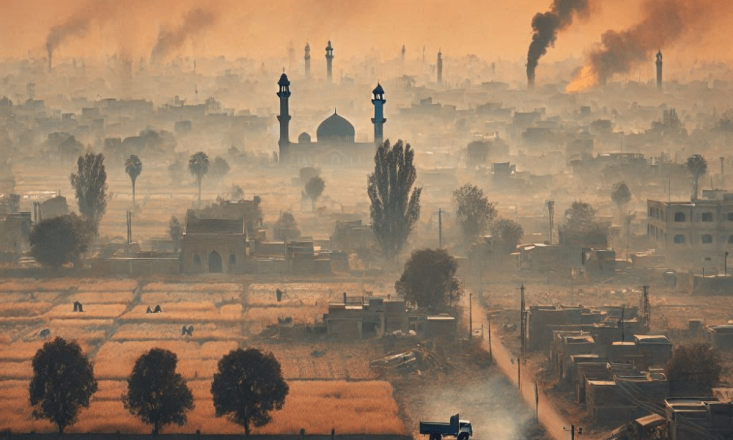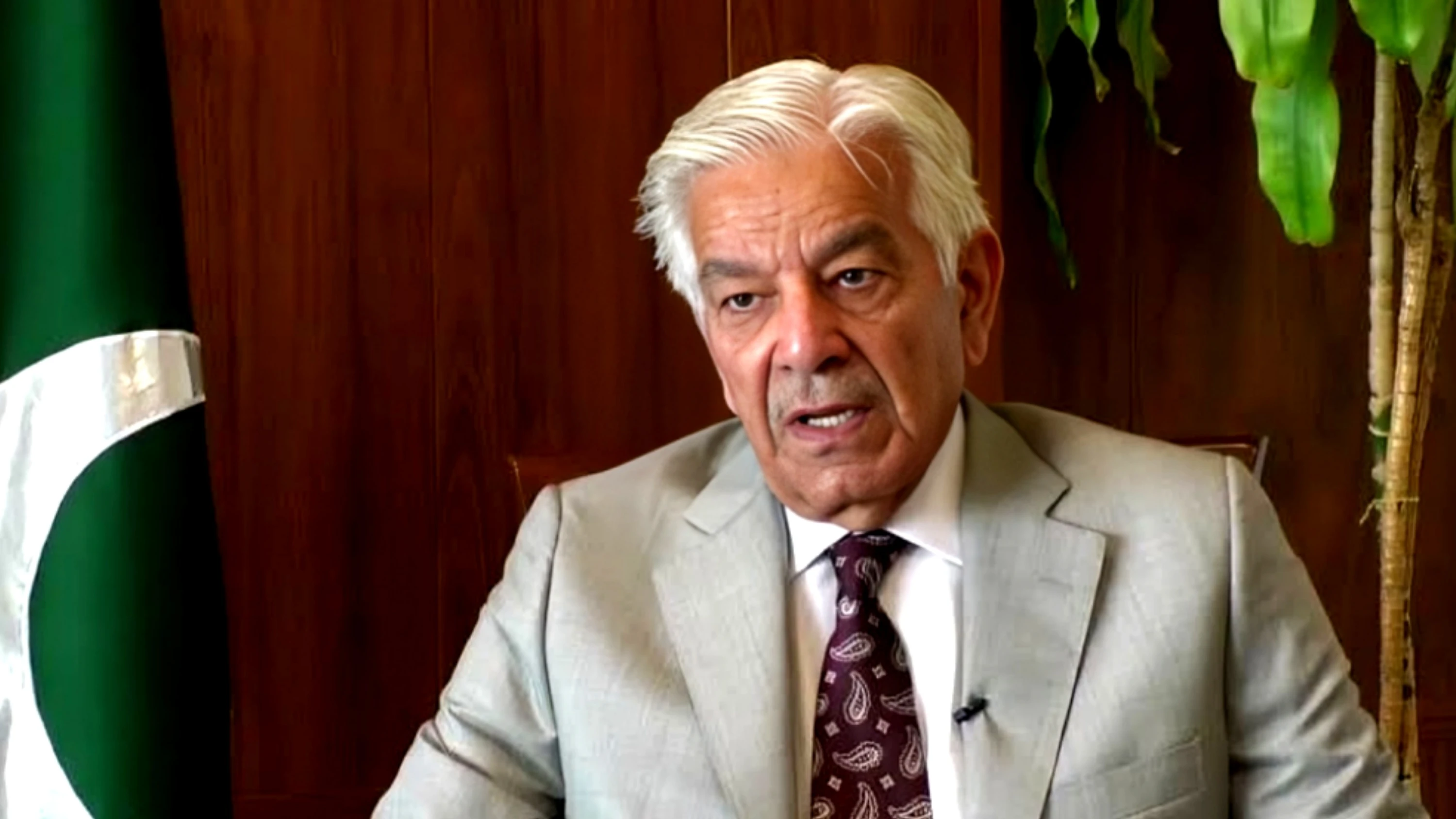From stubble burning to toxic smog, Pakistan’s air pollution crisis jeopardizes its future; overcoming this challenge requires bold policy reforms and climate diplomacy.
Pakistan is grappling with an escalating air pollution crisis, reaching alarming levels this year. The nation, home to 248 million people, now ranks as the second most polluted country, with a substantial rise in fine particulate matter (PM2.5) and harmful pollutants like nitrous oxide and carbon monoxide. This issue is causing grave health concerns, economic losses, and environmental damage. The situation demands bold action from all sectors to curb emissions, promote sustainable practices, and protect public health.
The Depth of the Air Pollution Crisis
1.Severe Health Impacts
• Pakistan’s air quality continues to worsen, with air pollution levels exceeding the World Health Organization’s safe limits by over 14 times. Cities like Lahore and Multan have recorded dangerously high levels of pollutants. The UN reports that 1.8 million people require medical treatment, and 11 million children face health risks from smog.
•The impacts are deadly:
Poor air quality reduces life expectancy by up to five years in highly polluted areas, contributing to respiratory and cardiovascular diseases, pre-term births, and cognitive impairments in children.
2.Economic Consequences
• Air pollution costs Pakistan 7% of its GDP annually, driven by productivity loss, healthcare expenses, and premature deaths. It also severely impacts agriculture, with the Asian Development Bank estimating significant crop losses due to air pollution.
•Poor air quality also affects agriculture, with ozone pollution causing significant losses in rice and wheat crops, threatening food security.
The Role of Agriculture and Stubble Burning
1. Nitrous Oxide and Agriculture
• Nitrous oxide, a powerful greenhouse gas, accounts for 10% of global warming since the Industrial Revolution. In Pakistan, 75% of nitrous oxide emissions stem from agricultural activities, primarily due to the overuse of synthetic fertilizers and stubble burning.
• The stubble burning practice worsens air quality by releasing toxic gases, including nitrous oxide and carbon dioxide. In Punjab alone, over 32,000 stubble burning hotspots were identified in 2024.
2. Tackling Stubble Burning
• Despite regulations, stubble burning continues across Punjab. The Punjab government has set up anti-smoke squads, but the practice remains widespread due to a lack of awareness and insufficient enforcement of fines.
The Need for Policy and Climate Action
1. Climate Diplomacy and Cross-Border Cooperation
• Addressing air pollution requires cooperation between Pakistan and India, particularly in managing stubble burning. Joint efforts in air quality monitoring, policy harmonization, and sustainable agricultural practices can help mitigate the crisis.
• Both governments must work with financial institutions to support green practices in agriculture, encouraging small and medium enterprises to adopt cleaner technologies.
2. Sustainable Agricultural Practices
• Climate-smart agricultural technologies, such as precision irrigation, bio-based fertilizers, and zero-tillage, can significantly reduce emissions. Financial incentives and farmer education should be prioritized to transition to sustainable farming practices.
• Public-private partnerships are essential to introduce advanced crop residue management technologies that eliminate harmful burning practices.
Strengthening Governance and Policy Implementation
1. Integrated Climate Governance
• Pakistan must adopt an evidence-based governance model that integrates air quality regulations across sectors. Coordination between federal and provincial governments is crucial, alongside collaboration with climate experts to ensure effective implementation.
• The “One Atmosphere Governance” approach should be promoted to foster collaboration among various sectors, ensuring regular coordination and data sharing for air pollution mitigation.
2. Mobilizing Climate Finance
• The government should attract private and commercial investments in clean air technologies. Financial institutions must integrate environmental risks into their operations and prioritize investments in sustainable industries.
• Financial incentives for clean air solutions, especially in agriculture and energy sectors, should be a core component of climate finance discussions.
Addressing Short-Lived Climate Pollutants
1. Tackling Non-CO2 Pollutants
• Pakistan must address short-lived climate pollutants (SLCPs) like methane, ozone, and nitrous oxide in its upcoming Nationally Determined Contributions (NDCs). Targeting these pollutants will reduce public health risks and protect food security.
• The next round of NDCs must include sectoral mitigation targets, concrete policies, and financing mechanisms to drive meaningful change.
Reprioritizing Air Pollution Financing
1. Reallocation of Financial Resources
• Financial institutions in Pakistan must reallocate funding to combat air pollution. The State Bank of Pakistan should enforce stronger implementation of environmental and social risk management frameworks to promote cleaner technologies.
• Air quality considerations should be embedded in financing practices for sustainable agriculture, renewable energy, and cleaner industrial processes.
Conclusion: A Call for Comprehensive Action
Pakistan’s air pollution crisis is a pressing environmental and public health emergency that requires coordinated, multi-sectoral solutions. By embracing bold policy reforms, promoting sustainable agriculture, strengthening climate diplomacy, and mobilizing climate finance, Pakistan can address its pollution crisis. The inclusion of environmental rights in Pakistan’s Constitution highlights the urgent need for a systemic shift toward clean air and a healthier, more sustainable future.







